11 mars 2023 — Maison de la Recherche, Sorbonne Université,
Paris — Egalement en visioconférence.
Dans son enquête intitulée Sainte Vergogne (2020), l’historien des émotions Damien Boquet a montré qu’au Moyen Âge, en contexte chrétien, la honte pouvait faire l’objet d’une glorification paradoxale. Qu’en est-il à l’époque moderne, où non seulement le discours religieux, mais également le discours médical, philosophique ou encore juridique s’emparent des affects ? La honte est-elle une émotion morale d’après les textes des XVIe- XVIIIe siècles ? Dans quels contextes est-elle préconisée ? Dans quelle mesure les auteurs et autrices de l’Ancien Régime se montrent-ils sensibles aux contradictions qui pèsent sur cet affect ? Cette journée d’étude se propose de contribuer à l’histoire des émotions en examinant les représentations de la honte à l’époque moderne (XVIe-XVIIIe siècles). Plus précisément, il s’agira, à l’appui de discours variés tels que les traités savants, les mémoires, la littérature épistolaire ou la littérature fictionnelle, de mettre en évidence les circonstances dans lesquelles elle peut être identifiée, et de questionner sa valeur morale.
***
À l’époque moderne, la honte est une passion mixte, dont la classification n’est pas fixée par la scolastique. Le plus souvent apparentée à la peur dont elle serait une espèce, elle est parfois décrite comme une « affection mêlée de courroux et de crainte » (Paré, Introduction de la chirurgie, 1575) ou comme une « douleur et une confusion » (Coëffeteau, Tableau des passions humaines, 1620). Mais aussi pénible et affligeante que soit l’expérience individuelle de la honte pour celui ou celle qui s’y trouve confronté, elle demeure l’objet d’un discours laudatif dans les traités savants médiévaux et modernes. Si l’on en croit même un sceptique comme La Mothe Le Vayer, il semblerait presque que cet affect ait
« toujours été pris en bonne part » (La Morale du prince, 1651). Les théologiens, mais aussi les moralistes, les médecins, les philosophes ou encore les pédagogues de l’époque moderne se plaisent à souligner les grâces de cette passion. De même que le discours religieux loue l’action de la « honte salutaire » (Catéchisme du Concile de Trente, 1566) qui éloignerait de la pente du péché, le discours civil semble soutenir que cette passion concourrait à faire observer les lois. Concurrente de la vergogne et de la pudeur, la crainte du déshonneur est parfois décrite comme un premier sentiment du bien et du mal et semble s’inscrire dans une histoire qui est aussi celle de la conscience.
Convaincus du pouvoir de cet affect, auteurs et autrices ne vont-ils pas parfois jusqu’à recommander à leurs destinataires d’en faire usage intentionnellement ? Dans les régimes de santé, les médecins préconisent par exemple d’utiliser la honte comme un remède pour guérir les impudents de leur manque de modération dans les plaisirs de la chair, qu’ils soient gourmandise, paresse ou volupté (Patin, Traité de la conservation de santé, 1632). Pour corriger les enfants indociles, parents et précepteurs sont quant à eux incités à leur infliger quelque « petite honnête honte » (Héroard, De l’institution du prince, 1609) plutôt que de recourir aux châtiments corporels. La honte n’est-elle pas, selon Rousseau, un frein protecteur grâce auquel Émile n’est pas entièrement livré à lui-même et à ses désirs (De l’éducation, 1762) ? Enfin, certains auteurs ne relèvent-ils pas que les femmes, à l’instar des enfants, seraient « sans doute plus susceptibles de cette passion que les hommes » (Chalesme, L’homme de qualité, 1671) ? Envisager la honte à travers le prisme du genre pourrait d’ailleurs se révéler une
démarche fructueuse, tant cette perspective semble occuper une place de choix dans les différents discours de la modernité. Un roman comme Manon Lescaut de l’abbé Prévost (1731) pourrait constituer à ce titre un terrain d’investigation intéressant en se fondant sur une comparaison entre les manifestations et représentations de la honte s’appliquant au chevalier des Grieux et celles qui se rapportent à Manon.
Ainsi le « vermillon de la vertu » apparaît-il également comme son aiguillon (La Mothe Le Vayer, ibid.). Certes la honte est parfois blâmée dans ces discours savants. Mais de telles mises en garde visent- elles alors à dénoncer la souffrance qu’elle représente ? N’ont-elles pas plutôt pour objet de prévenir ses mauvais usages qui pourraient mettre en échec sa fonction d’édification ? Mal conduite, la honte menacerait de porter sur des objets inappropriés, au point de rendre « honteux de bien faire » (Descartes, Les Passions de l’âme, 1649). Excessive, elle éloignerait de la vertu plutôt que d’y conduire.
Cependant, il convient de mettre cette interprétation morale du discours savant sur la honte à l’épreuve de la lecture attentive des textes dans toute leur diversité générique. Car la honte est tout d’abord fréquemment associée à des situations qui échappent à la responsabilité des individus et dans lesquelles la vertu demeure impuissante. Il suffit de songer, entre autres exemples, à la honte portant sur la laideur, sur les infirmités ou encore sur le statut social. Comme l’ont montré les travaux de Claudine Sagaert sur l’Histoire de la laideur féminine (2015), la honte semble bel et bien être l’affect qui vient sanctionner tout écart vis-à-vis des normes corporelles, en particulier celles qui concernent le corps des femmes. Plus encore, l’expérience de la honte est parfois vécue non par le coupable, mais par la victime, notamment dans le cas des violences sexuelles. C’est ce qui conduit un moraliste tel que René Bary à observer que cet affect peut être produit par les vices et fautes d’autrui (La Morale, 1663), et un tel exemple constitue une objection sérieuse à l'interprétation de la honte comme une vertu morale. Constate-t-on également dans les œuvres littéraires que la honte est identifiée comme une modalité affective dominante des expériences d’agression ? Les nouvelles mettant en scène des tentatives de viol dans L’Heptaméron de Marguerite de Navarre (1559) pourraient par exemple constituer un champ d’enquête possible.
De surcroît, au-delà de ces usages de la honte, ce sont peut-être surtout ses emplois immoraux qui retiennent l’attention, puisqu’ils sont sans doute les témoins les plus patents de l’instrumentalisation dont cette émotion peut faire l’objet. À cet égard, on peut songer aux romans libertins, tels que les Liaisons dangereuses (Laclos, 1782) ou encore La Nouvelle Justine ou les Malheurs de la vertu, suivie de l'histoire de Juliette, sa sœur (Sade, 1799), dans lequel les valeurs, dont la honte, sont particulièrement dévoyées.
Enfin, certaines mentions de la honte paraissent vidées de leur dimension morale, non pour verser dans un amoralisme ou même un immoralisme, mais plutôt pour répondre à des usages rhétoriques variés. La mise en scène hyperbolique de la contrition peut par exemple s’inscrire dans un discours galant, comme lorsque des personnages de Madeleine de Scudéry se disent « honteux » de ne pas avoir pu rendre leurs hommages à la dame qu’ils courtisent. Sous la plume de la marquise de Sévigné, la honte peut encore participer d’un art consommé de l’ironie au service de la flatterie, notamment lorsque l’épistolière confesse à ses interlocuteurs sa honte d’être trop aimée d’eux et de ne pas mériter leurs égards. Plus largement, ce sont donc les usages littéraires, rhétoriques et stylistiques de la honte
qui se trouvent mis en jeu. Dans le cadre de cette journée d’étude, la réflexion sur les usages et les valeurs de la honte sous l’Ancien Régime nous conduira ainsi à porter une attention particulière aux circonstances dans lesquelles la honte est identifiée dans les textes (quels objets, situations, personnages sont concernés ?), mais aussi à questionner les modalités de l’écriture et de mise en récit de l’expérience honteuse.
***
Cette journée d’étude aura lieu le 11 mars 2023 à la Maison de la Recherche de Sorbonne Université (Paris) et en format hybride afin de favoriser les échanges internationaux.
Les actes sont destinés à être publiés.
Les propositions de contribution, de 500 mots maximum, sont à envoyer à Justine Le Floc’h (justine.lefloch[at]gmail.com) et à Lisa Sancho (lisa.sancho[at]orange.fr) avant le 15 novembre 2022.
***
Indications bibliographiques
Boquet Damien, Sainte Vergogne. Les privilèges de la honte dans l’hagiographie féminine au XIIIe siècle, Paris, Classiques Garnier, 2020.
Brancher Dominique, Équivoques de la pudeur : fabrique d’une passion à la Renaissance, Genève, Droz, 2015.
Deonna Julien, Raffaele Rodogno et Fabrice Teroni, In Defense of Shame. The Faces of an Emotion, Oxford ; New York, Oxford University Press, 2011.
Elias Norbert, La Civilisation des mœurs, traduit par Pierre Kamnitzer, Paris, Pocket, 2002 [1939, trad. fr. 1973].
Flannery Mary C., Practising shame: Female honour in later medieval England, Manchester University Press, 2020.
Martin Jean-Pierre, La Honte. Réflexions sur la littérature, Paris, Gallimard, 2017 [1re éd. Le Livre des hontes, Paris, Éditions du Seuil, 2006].
Perfetti Lisa R., The Representation of Women’s Emotions in Medieval and Early Modern Culture, Gainesville, University Press of Florida, 2005.
Sagaert Claudine, Histoire de la laideur féminine, Paris, Éditions Imago, 2015.




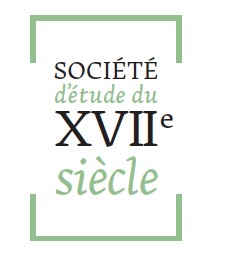 La Société d’étude du XVIIe siècle propose chaque année une aide à l’édition.
La Société d’étude du XVIIe siècle propose chaque année une aide à l’édition.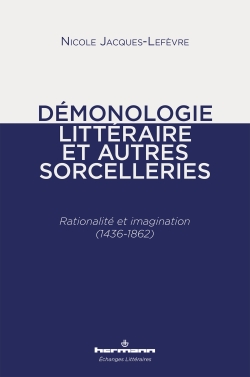 Nicole Jacques-Lefèvre, Démonologie littéraire et autres sorcelleries. Rationalité et imagination (1436-1862), Paris, Hermann, 2022.
Nicole Jacques-Lefèvre, Démonologie littéraire et autres sorcelleries. Rationalité et imagination (1436-1862), Paris, Hermann, 2022.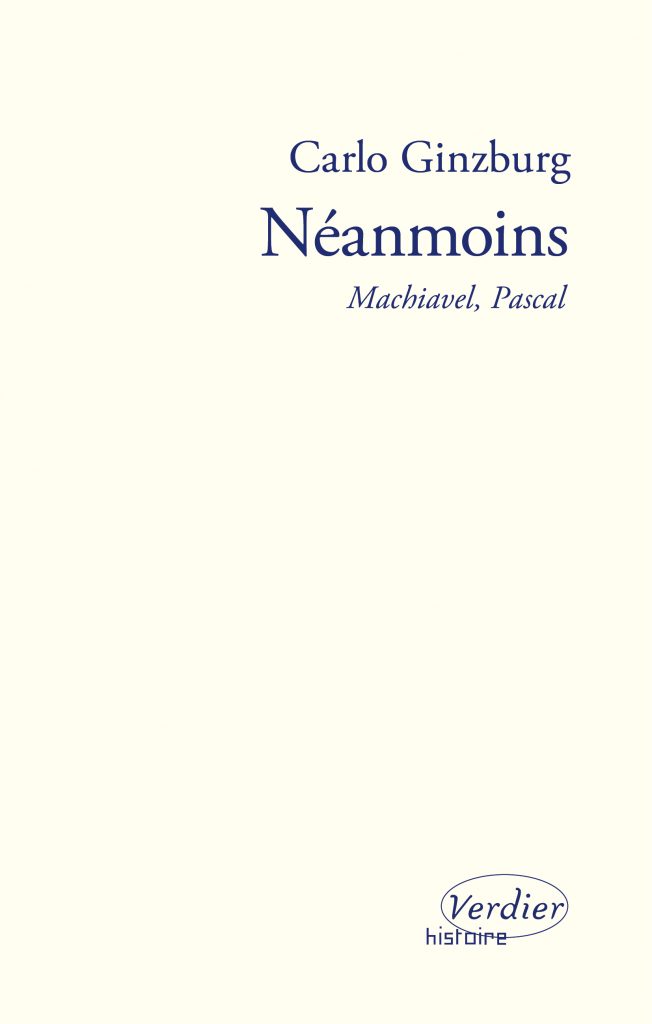 Carlo Ginzburg, Néanmoins. Machiavel, Pascal (trad. M. Rueff), Lagrasse, Verdier, 2022.
Carlo Ginzburg, Néanmoins. Machiavel, Pascal (trad. M. Rueff), Lagrasse, Verdier, 2022.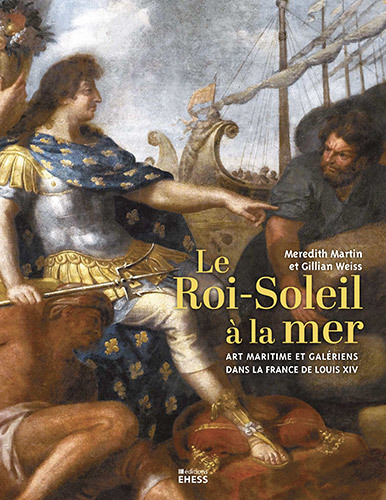 M. Martin, G. Weiss, Le Roi-Soleil à la mer. Art maritime et galériens dans la France de Louis XIV, Aubervilliers, éditions EHESS, 2022.
M. Martin, G. Weiss, Le Roi-Soleil à la mer. Art maritime et galériens dans la France de Louis XIV, Aubervilliers, éditions EHESS, 2022.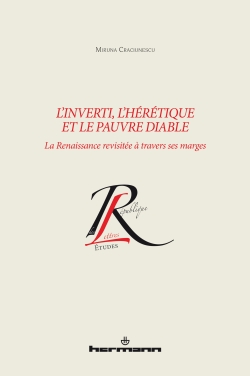 M. Craciunescu, L'inverti, l'hérétique et le pauvre diable. La Renaissance revisitée à travers ses marges, Paris, Hermann, coll. "Les collections de la République des Lettres", 2022
M. Craciunescu, L'inverti, l'hérétique et le pauvre diable. La Renaissance revisitée à travers ses marges, Paris, Hermann, coll. "Les collections de la République des Lettres", 2022